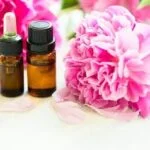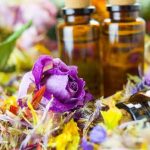Aromatherapy has gained popularity in recent years as a holistic approach to health and wellness. The use of essential oils for therapeutic purposes has been praised for its ability to promote relaxation, reduce stress, and improve mood. However, amidst the positive feedback, there have been questions raised about potential negative side effects.
Are there negative side effects to aromatherapy? In this article, we will delve into the science behind aromatherapy, explore its benefits, and examine the potential risks associated with its practice.
The use of aromatic plant extracts and essential oils for medicinal and therapeutic purposes dates back thousands of years. Aromatherapy is believed to stimulate powerful responses in the brain that can affect one’s physical and emotional well-being. Many individuals have reported significant improvements in their overall health and quality of life through the use of aromatherapy.
Despite its widespread popularity, there are concerns regarding potential negative side effects associated with aromatherapy. Some individuals may experience allergic reactions or sensitivities to certain essential oils, while others may face adverse effects when using them alongside certain medical conditions or medications. In the following sections, we will take a closer look at these potential risks and provide tips for safe and effective aromatherapy practice.
Understanding the Science Behind Aromatherapy
Aromatherapy is a holistic healing treatment that uses natural plant extracts to promote health and well-being. It involves the use of essential oils derived from various plants to improve physical, mental, and emotional health.
The practice of aromatherapy has gained popularity due to its potential benefits such as stress relief, relaxation, improved sleep, and relief from certain symptoms. However, in order to truly understand the practice of aromatherapy and its potential negative side effects, it is important to delve into the science behind this alternative therapy.
Aromachemistry
One of the fundamental principles behind aromatherapy is the concept of aromachemistry – the study of chemical compounds found in essential oils that contribute to their therapeutic properties. Essential oils are composed of various chemical components such as alcohols, terpenes, esters, ketones, and phenols. Each of these components interacts with the body in different ways when inhaled or applied topically. For example, some compounds may have sedative effects while others may have antimicrobial properties.
How Aromatherapy Works
When essential oils are inhaled or absorbed through the skin during aromatherapy sessions, they can affect the limbic system – a part of the brain that plays a role in emotions, behaviors, sense of smell, and long-term memory. This interaction can lead to changes in heart rate, blood pressure, stress levels, hormone production, and other bodily functions.
Evidence-Based Research
Scientific research has supported some claims about the effectiveness of aromatherapy for certain health conditions such as anxiety reduction and improving quality of life for people with chronic illnesses. Studies have documented positive effects on mood improvement and stress reduction when certain essential oils are used appropriately. However; there is still ongoing research into understanding how exactly these substances work within the body and how they can be best utilized for maximum benefit while minimizing potential negative side effects.
By understanding the science behind aromatherapy through concepts such as aromachemistry and evidence-based research into its efficacy; we can better grasp both its potential benefits and risks associated with improper usage or individual sensitivities to specific essential oils.
Potential Negative Side Effects of Aromatherapy
While aromatherapy is generally considered safe and beneficial, it is important to be aware of the potential negative side effects that can occur. One of the most common issues associated with aromatherapy is allergic reactions and sensitivities. Some individuals may have allergies to certain essential oils, which can result in symptoms such as skin rashes, itching, and respiratory problems. It is crucial to perform a patch test before using any new essential oil to check for any adverse reactions.
In addition to allergic reactions, certain medical conditions may be exacerbated by the use of aromatherapy. For example, individuals with asthma or chronic obstructive pulmonary disease (COPD) should be cautious when using essential oils, as strong odors can trigger breathing difficulties. Similarly, people with epilepsy should avoid stimulating oils like rosemary and sage, as they may provoke seizures.
To prevent negative side effects from aromatherapy, it is essential to know which essential oils to avoid and how to use them properly. Oils such as cinnamon, clove, and lemongrass are known for causing skin irritation and should be diluted before topical application. Pregnant women should also refrain from using certain oils like clary sage and juniper berry as they can stimulate contractions.
| Potential Side Effect | Preventative Measures |
|---|---|
| Allergic Reactions | Perform a patch test before using new essential oils |
| Exacerbation of Medical Conditions | Avoid strong odors for individuals with asthma or COPD; refrain from stimulating oils for people with epilepsy |
| Proper Usage of Essential Oils | Avoid skin-irritating oils; dilute as recommended; refrain from stimulating contractions during pregnancy |
Allergic Reactions and Sensitivities
Aromatherapy, while generally considered safe for most people when used properly, can still pose potential negative side effects, particularly in relation to allergic reactions and sensitivities. It is important to note that essential oils are highly concentrated plant extracts which can trigger allergic reactions in some individuals. Common symptoms of an allergic reaction to essential oils can include skin rashes, itching, redness, hives, and in more severe cases, respiratory issues and anaphylaxis.
One of the most common causes of allergic reactions to essential oils is the presence of certain compounds that may be allergens for some individuals. For instance, limonene and linalool are widely used compounds found in many essential oils that have been known to cause skin sensitization and allergic contact dermatitis in some people.
Additionally, certain essential oils may also cross-react with other allergies an individual may have, making it crucial for individuals with known allergies to exercise caution when using aromatherapy products.
To reduce the risk of allergic reactions and sensitivities when using aromatherapy, it is advisable to conduct a patch test before applying any new essential oil directly onto the skin. This involves diluting a small amount of the essential oil with a carrier oil and applying it to a small area on the skin to check for any adverse reaction.
If any signs of irritation or allergic reaction occur within 24-48 hours after the patch test, it is recommended not to use that particular essential oil.
| Common Allergenic Compounds | Associated Symptoms |
|---|---|
| Limonene | Skin sensitization and dermatitis |
| Linalool | Skin irritation and allergies |
Adverse Effects on Certain Medical Conditions
Aromatherapy has gained popularity for its potential benefits in promoting relaxation, reducing stress, and improving overall well-being. However, it is important to note that certain medical conditions may be negatively affected by the use of essential oils in aromatherapy. Individuals with asthma, chronic respiratory conditions, and allergies should exercise caution when using essential oils, as inhaling certain scents may trigger adverse reactions.
For individuals with respiratory conditions such as asthma or chronic obstructive pulmonary disease (COPD), the inhalation of strong scents could potentially exacerbate symptoms and lead to breathing difficulties. In some cases, essential oils with high levels of compounds like limonene or linalool may cause irritation and inflammation in the airways, leading to discomfort and worsening of respiratory symptoms.
Furthermore, individuals with skin sensitivities or dermatological conditions should also be cautious when using essential oils in aromatherapy. Direct contact with certain oils such as cinnamon, clove, or oregano can result in skin irritation, redness, or allergic reactions. It is crucial for individuals with pre-existing skin conditions to conduct a patch test before using essential oils topically or seek advice from a healthcare professional before incorporating aromatherapy into their wellness routine.
In essence, while aromatherapy offers numerous potential benefits for mental and emotional well-being, it is vital for individuals with specific medical conditions to approach its practice with care. Consulting with a healthcare provider or professional aromatherapist can provide personalized guidance on safe usage and help mitigate any potential adverse effects on certain medical conditions.
Essential Oils to Avoid and Proper Usage
Essential Oils to Avoid
While aromatherapy can have numerous benefits, it is important to be aware of certain essential oils that may cause negative side effects. Some essential oils can irritate the skin, trigger allergic reactions, or even have toxic effects when used improperly. It is crucial to be cautious and do thorough research before using any essential oil, especially if you have a pre-existing medical condition or are pregnant.
One essential oil to avoid is camphor oil, which can be toxic when ingested and may cause skin irritation. Another oil to be cautious of is wintergreen oil, especially for those who are prone to aspirin-related allergies. Additionally, pennyroyal oil should be avoided as it has been linked to liver and kidney damage.
Proper Usage of Essential Oils
To minimize the risk of negative side effects from aromatherapy, it is important to use essential oils properly. Always dilute essential oils with a carrier oil before applying them to the skin, as using undiluted oils can lead to skin irritation or sensitization. Adhere to recommended dilution ratios and avoid applying essential oils directly onto sensitive areas such as the eyes or mucous membranes.
It is also crucial to store essential oils properly in dark glass containers and keep them out of reach of children and pets. Following proper storage guidelines will help maintain the potency and freshness of the oils while ensuring safety in handling them. Lastly, always adhere to recommended dosage guidelines and usage instructions provided by reputable sources when incorporating essential oils into your aromatherapy practice.
Tips for Safe Aromatherapy Practice
Aromatherapy has been known to provide numerous benefits, but it’s important to practice it safely in order to avoid any potential negative side effects. Here are some tips for safe aromatherapy practice:
- Choose high-quality essential oils: When using essential oils for aromatherapy, it’s crucial to choose high-quality oils from reputable sources. This can help minimize the risk of adverse reactions and ensure that you’re getting the full therapeutic benefits of the oils.
- Dilute essential oils properly: Essential oils are highly concentrated and can be irritating to the skin if used undiluted. It’s important to dilute them with a carrier oil before applying them topically. The proper dilution ratio varies depending on the specific essential oil and its intended use.
- Avoid ingesting essential oils: Ingesting essential oils can be dangerous and should only be done under the guidance of a qualified healthcare professional. Not all essential oils are safe for internal use, and improper ingestion can lead to serious health issues.
In addition, it’s important to consider certain safety precautions when using aromatherapy, especially if you have pre-existing medical conditions or sensitivities. Always do a patch test before using a new essential oil topically, and be mindful of any potential allergic reactions or sensitivities.
By following these tips for safe aromatherapy practice, you can enjoy the benefits of aromatherapy while minimizing the risk of negative side effects. However, if you have any concerns or specific health conditions, it’s best to consult with a professional aromatherapist for personalized guidance and recommendations.
Consultation With a Professional Aromatherapist
Before delving into the world of aromatherapy, it’s essential to consider consulting with a professional aromatherapist. These experts have undergone extensive training and education in the field of aromatherapy and are well-equipped to guide individuals in using essential oils safely and effectively. Here are some reasons why seeking the advice of a professional aromatherapist is beneficial:
1. Expertise: Aromatherapists are knowledgeable about the properties of different essential oils, their potential interactions, and suitable applications for specific health concerns. This expertise can help individuals avoid potential negative side effects and ensure that they use essential oils in a safe manner.
2. Personalized Guidance: Professional aromatherapists can provide personalized recommendations based on an individual’s unique health profile, preferences, and wellness goals. This tailored guidance can help individuals maximize the benefits of aromatherapy while minimizing any potential risks.
3. Safety Precautions: Aromatherapists can educate individuals on proper dilution ratios, suitable application methods, and safety precautions to follow when using essential oils. This knowledge is vital in preventing adverse reactions and ensuring a positive experience with aromatherapy.
Conclusion and Final Thoughts on Aromatherapy and Its Safety
In conclusion, while aromatherapy offers a wide range of benefits for both physical and emotional well-being, it is important to be aware of the potential negative side effects that could arise from improper use or pre-existing medical conditions. Allergic reactions and sensitivities to certain essential oils, as well as adverse effects on specific medical conditions, are some of the main concerns when it comes to the safety of aromatherapy.
However, with proper knowledge and precautions, many of these risks can be mitigated.
It is crucial for individuals to be diligent in researching and understanding the different essential oils to avoid, especially if they have known allergies or sensitivities. Additionally, those with certain medical conditions should consult with healthcare professionals before incorporating aromatherapy into their wellness routines. By being cautious and informed about proper usage and potential risks, individuals can continue to experience the therapeutic benefits of aromatherapy safely.
Lastly, seeking guidance from a professional aromatherapist can provide valuable insights and personalized recommendations for safe and effective aromatherapy practice. Their expertise can help individuals navigate through the vast array of essential oils and techniques available, ensuring that they are using them in a way that promotes their well-being without causing harm. Ultimately, by approaching aromatherapy with mindfulness and knowledge, individuals can enjoy its positive effects while minimizing any potential negative side effects.
Frequently Asked Questions
What Are the Bad Side Effects of Aromatherapy?
The bad side effects of aromatherapy can include skin irritation or allergic reactions to essential oils, especially when they are used in high concentrations or applied directly to the skin. Some individuals may also experience headaches, dizziness, or nausea from strong or overpowering scents. Inhaling certain essential oils can also cause respiratory issues for some people.
What Is the Risk of Aromatherapy?
The risk of aromatherapy lies mainly in using essential oils incorrectly or in high doses without proper guidance. Essential oils are highly concentrated and potent substances that can cause harm if not diluted properly or used in excessive amounts.
There is also a risk of interaction with certain medications or medical conditions, so it’s important to consult with a healthcare professional before using aromatherapy.
Who Should Avoid Aromatherapy?
People with certain health conditions such as asthma, allergies, or skin sensitivities should avoid aromatherapy or use it cautiously under the guidance of a qualified practitioner. Pregnant women should also be cautious about using essential oils, especially during the first trimester when the risk is highest.
Additionally, individuals with compromised immune systems should speak with their healthcare provider before using aromatherapy to ensure it is safe for them.

Are you looking for a natural way to improve your health and wellbeing?
If so, aromatherapy may be the answer for you.





